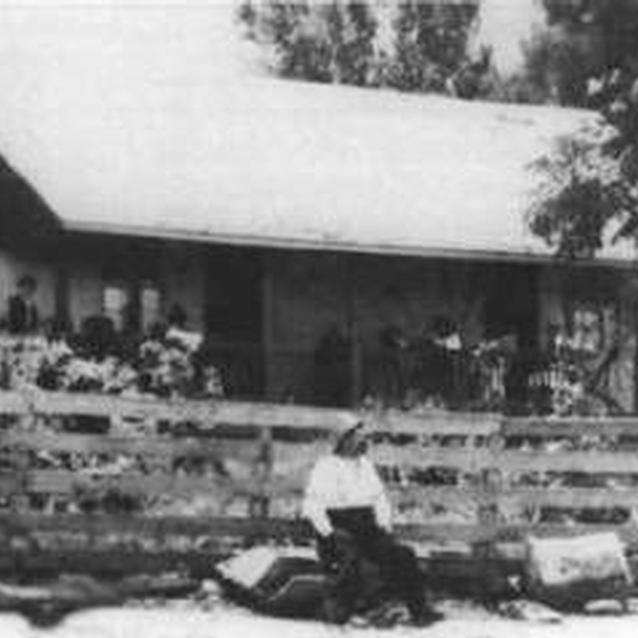The fact that a landowner owned slaves did not automatically make him a secessionist. Likewise, a landowner who did not own slaves was not automatically a Unionist.

It is often assumed that if a Civil War-era family owned slaves, then they certainly would not hesitate to give their allegiance to the Southern cause. In some cases this is true, but in many cases it is not.The fact that a landowner owned slaves did not automatically make him a secessionist. Likewise, a landowner who did not own slaves was not automatically a Unionist.
Examples of both cases are found at Wilson's Creek, Missouri, site of one of the Civil War's earliest battles. John Ray, a native of Tennessee, settled along Wilson's Creek during the late 1840s. Ray married a widow, Roxanna Steele, and the couple began creating a new life together. In 1861, John and Roxanna lived with their nine children, and two young slaves, Wiley and Rhoda. Ray was not wealthy by any means, but was better off than many of his neighbors. He owned over 400 acres of land and his farm was worth $6,600. Ray owned five different species of animals valued at $1,000. He also was able to employ a hired hand named Julius Short. In addition to working a farm and owning slaves, John Ray served as a postmaster. In 1856, a United States Post Office was established for the Wilson's Creek area, and John Ray would hold the position of postmaster until 1866.
Although both John and Roxanna were from the South (Roxanna was from Georgia) and owned slaves, they remained loyal to the Union. It is certain that John Ray would not have kept his job as postmaster for the federal government if the Ray family had harbored pro-secessionist sympathies.
Another prominent local Unionist family was that of Congressman John Phelps and his wife, Mary. They were not residents of Wilson's Creek, but lived in nearby Springfield. Phelps was a lawyer, a member of Missouri's House of Representatives (elected 1840), the United States House of Representatives (elected 1844), and a Union soldier. With the outbreak of the Civil War, he became colonel of the Greene County Regiment, Missouri Home Guard. Following the Union defeat at Wilson's Creek, Phelps was appointed colonel of Phelps' Regiment, Missouri Infantry, a six-month unit that fought at the Battle of Pea Ridge. Even though a prominent Union man, Congressman Phelps owned 10 slaves.
On the other hand, the E.B. Short and William B. Edwards families of Wilson's Creek were pro-Union and did not own slaves. They either did not own enough land to warrant them, or perhaps they simply could not afford them.
The wealthiest landowner near Wilson's Creek was Joseph D. Sharp. He owned over 1,300 acres and produced large quantities of marketable grain and produce. He owned more than 130 animals. The Sharps lived in a two-story farm house, uncommon for families in this area. According to the 1860 census, the Sharp farm was worth about $7,000 (cash value of the farm, implements, and livestock). The Sharps are examples of typical Southerners. They probably owned four slaves in 1861, and scattered evidence supports the belief that they were secessionists.
Unfortunately, relatively little is known about the white and African American families who lived in Wilson Township. It is clear, however, that although there were cases of diehard, archetypal Unionists and Southerners in and around Wilson's Creek, there were also exceptions.
Last updated: August 15, 2017
